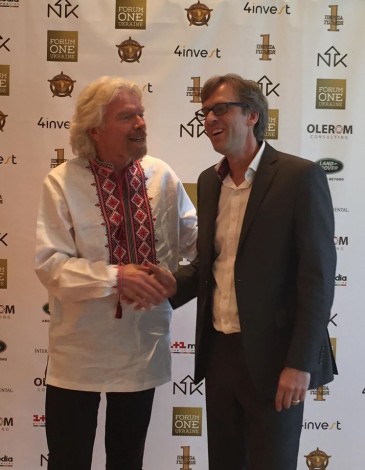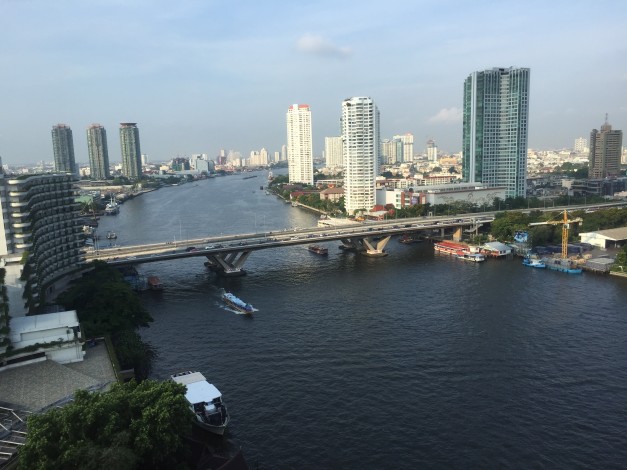
30 April 2015 – Kiev, Ukraine.
Today Sir Richard Branson flew to Kiev, the capital of Ukraine, in his private plane just so that he could speak to 3000+ attendees at the Forum One Conference.
At the end of his presentation he got the question from the moderator: ”Why?”
It’s a fair question. Here is a billionaire businessman with more than 300 companies, who also is personally involved in a number of global not-for-profit-projects and who is famous for privately living an extremely active life. So why does he fly for hours just to speak for a bunch of Eastern European business people?
He replied: “We all know that when we give a present it’s better than when getting one. I have lived a fun, and active, life. I think it is important to share my experiences.”
Great answer – but he could, of course, just have recorded a video and sent it to the organisers or posted it online. But he didn’t.
Why not?
He did not answer that question, but I think the answer is that there are few things that can give such a rush as standing in front of a big audience delivering a speech on a subject you really believe in. The excitement, the inspiration and the feedback that you get from giving a well received speech is hard to beat.
Think about it: What do former US presidents do when they are done being “the most powerful man in the free world”?
Answer: They often hit the speaker circuit.
US presidents and billionaires – people who are better positioned than probably anyone else to do exactly what they want – choose to spend their time speaking.
I find that an interesting observation.
Lesson: The profession of being a professional speaker is probably the most inspiring job in the world.
P.S.
I had the honor of being one of the keynote speakers at the same conference as Sir Richard Branson. What I especially liked from Sir Branson’s talk was his message of thinking grand – and to always keep looking for problems so solve. But what I liked more than hearing him speak was seeing how he was the same inspiring, curious and interested person behind the scene in private as he was on stage (and which we have gotten to know via the media.). He is possibly the person with the most positive energy that I have ever met.

